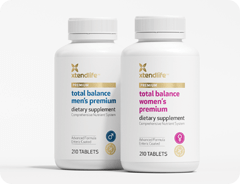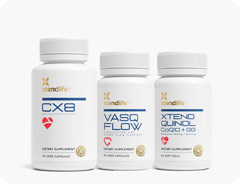A few days ago I had a call from a close friend telling me that a friend of his had earlier that day suffered some pain in his chest and arms whilst out surfing. He struggled to shore and fellow surfers called an ambulance and he was rushed off to hospital. Later that day he was feeling fine but the Doctors insisted that he stay in hospital for further tests.
The next day they determined that he had suffered a heart attack and it was suggested that he remain in hospital so they could perform a surgery procedure the next day. The recommended procedure was the implantation of a 'stent' or 'stents'. I don't know the exact number.
Now, picture this man for a moment! He is a fit, trim athletic man in his late 40's and here he is in a 'foreign environment', a hospital, surrounded by medical people telling him how lucky he is to be alive. For his own future 'health' it is being recommended that he undergoes this medical procedure which he has no knowledge of. There is no time for him to research the pro's and con's of the procedure in order to make an informed decision, so he is totally reliant on the word of the good Doctors.
This is a scenario which is repeated throughout the world thousands of times every day!
What would you do if you were in his situation?
Unless you had thought about it, it is likely that you would be like the majority of people and go along with the men and women in the white coats, wouldn't you? After all they are the voice of authority and your health is in their hands, isn't it?
That's a reasonable assumption, but is it truly the right decision? Is rushing in and performing this procedure immediately really the right thing to do? Maybe, maybe not!
In the case of the man that we are talking about I would really question the wisdom of rushing in and implanting a stent with all the inherent risks! Why? Simply, because in his case there is very likely a major factor which contributed to his heart attack that could be rectified with time and sensible care, and without medical intervention. I say this because I am aware that this person has over recent weeks been enduring a very sad personal family tragedy of the kind that few people will ever experience.
This has put him under enormous stress and it may well have been the biggest factor in triggering off his heart attack. It is well documented when someone is under this type of stress for an extended period that it can wreak havoc on their health due to excessive load on organs including the heart, blood vessels, adrenal glands and the immune system.
Was this the prime cause of the heart attack for this otherwise healthy man?
I don't know... but, unless there was an immediate danger of an artery closure and thus a further heart attack or stroke I would wonder if this procedure with its inherent risks was really warranted?
Stents, like angioplasty are akin to putting a 'band aid' on a wound that will not heal. It won't fix the problem and up to a third of the patients that have this procedure need to have it repeated or worse have a bypass within the next year.
Apart from the usual risks of being a 'guest' in a hospital, such as infection, incorrect drug administration etc, patients also run an increased risk of thrombosis when they get home. This is why Doctors have to administer drugs... in particular clot 'busting' drugs for some time after this type of procedure.
Am I saying that you shouldn't agree to this type of medical intervention? Of course not! There is always a place for this form of medical intervention and I have no doubt that this technology has saved many lives, and one day it may save yours! What I am saying is that you should be aware that:
That it is only a band aid, it will not fix the underlying cause of the problem and that there is a 1 in 3 chance that it has to be repeated in 12 months or, worse you may need a bypass. As with all medical procedures there is a risk component. For example, there is a class law suit underway at the moment as a result of deaths attributed to the latest high tech stents. The FDA has linked more than sixty deaths to a new Heart Stent, manufactured by Cordis Corporation, a Johnson & Johnson subsidiary. In October 2003, the FDA warned physicians about blood clots, strokes and other dangerous side effects associated with the stent known as the Cypher Stent.
So, if you are faced with a decision whether or not to have this procedure, make sure you thoroughly question the Doctors involved and ask all the hard questions and not accept everything that you are told on blind faith. Doctors are human, and they make mistakes just like the rest of us.
Pretty dismal reading all of this, isn't it?
So, what should you do?
If you have never had a heart attack or stroke, make damn sure you never do! If you have had one, or perhaps you already have a stent, do everything that you can to avoid having to have another one!
Of course, as for losing weight it is always easier said than done... but, it can be done!
I'm not going to try to preach to you what you should be doing, because I am sure that you know the basics, do a little regular exercise, eat moderately, avoid processed and refined foods, be aware of your blood profile. This means not only your cholesterol, but also your triglycerides, homocysteine and C -Reactive Protein which is an indicator of inflammation in your blood.
Don't get to hung up on just cholesterol, it's not the only risk factor for a heart attack. The other three markers that I just mentioned are just as important. You would be amazed at how many people only focus on their cholesterol primarily because it receives the most media attention. It only gets so much attention because the public awareness of cholesterol is driven by the pharmaceutical companies that push statin drugs for high cholesterol. The statin drugs have turned out to be their biggest 'cash cow' in history, and they are dangerous!
No single substance will 'cut it'.
Also, don't make the mistake that so many people do and just take a single pill or ingredient that purports to be just for the health of your heart. Your heart depends a great deal on all your other systems and organs in order to produce the chemicals needed to continue to function correctly.


 Supplements
Supplements Superfoods
Superfoods Bundles
Bundles









